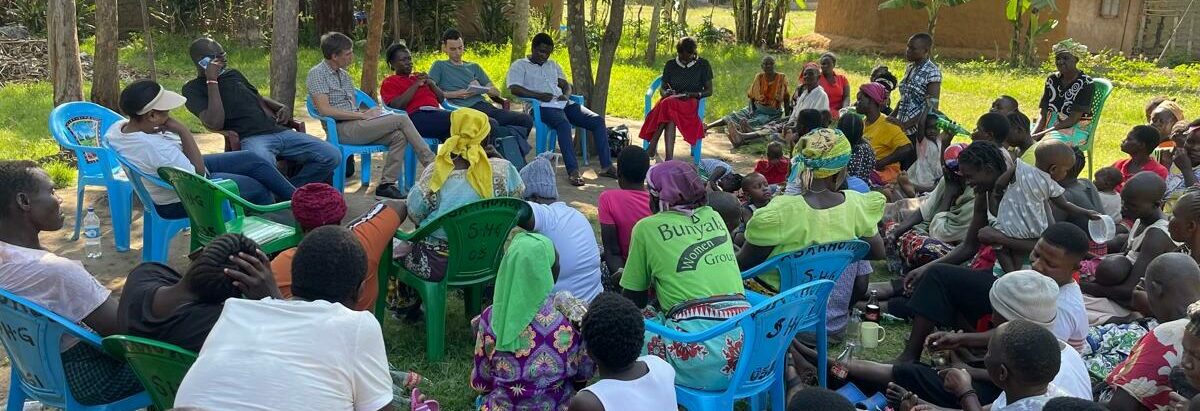
At the end of 2024, the PADEM team was back in the field, in contact with its local partners and project participants. Hugo (Africa project manager) and Gaëtan (international consultant) were able to spend a month and a half in Kenya (2 weeks) and Madagascar (4 weeks) with the aim of strengthening relations with the associations already supported and also identifying potential avenues for developing food security activities in the south-east of Madagascar, which is regularly hit by violent cyclones.
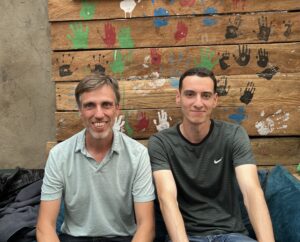
The programme of visits began in Nairobi with the Legacy Education Centre (LEC) and the Kibera Girls Soccer Academy (KGSA), a PADEM partner since 2009. The projects carried out in collaboration with these two partners aim to improve living conditions, education and access to income-generating activities for families in the Mathare and Kibera slums. Most of the participants are single mothers who are victims of gender-based violence (mainly physical, moral and sexual abuse) and their children.
LEC and KGSA have already been able to provide support to the most vulnerable families during previous projects, by building homes to get these vulnerable families off the streets and to provide a pathway to quality education for their children.
The two associations also support heads of household in their professional and savings projects. They set up savings and loan groups to encourage access to loans. The skills of the heads of household in terms of autonomy are strengthened through the management of these groups by the members themselves.
Finally, the project’s third aim is to raise public awareness of the fight against gender-based violence. Most of the time, this violence is directed against women and girls. Kenyan society is very patriarchal in some respects, so the two PADEM partners felt it was necessary to combat the problem of violence within the homes. At LEC, members of the team have themselves been victims of violence since childhood, which gives them added legitimacy to raise this issue with the residents of these shanty towns.
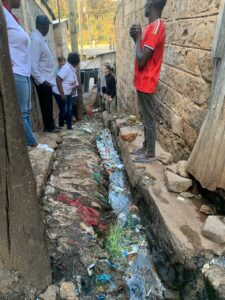
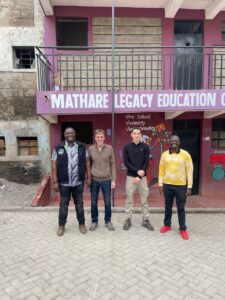
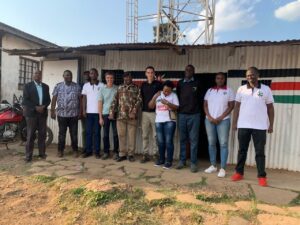
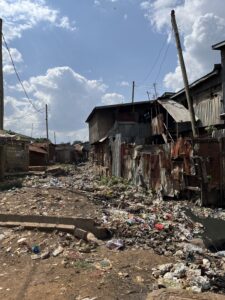
The team’s visits to Kenya continued in the direction of Busia. Again with our partner LEC, who is also active in this rural area of the country, on the border with Uganda.
The objectives of the project in this area are the same as those carried out in Nairobi. The aim is to increase access to safe housing and income-generating activities designed to improve living conditions for families and children’s education. The fight against gender-based violence is also being pursued in this part of the country, where alcohol addiction is more prevalent than in Nairobi, as is the prevalence of HIV/AIDS. It is indeed also very high, reaching 90% in this county (one of the worst affected in the country).
In addition, the activities in the village of Mabinju, a 2-hour drive from Busia, include the objective of adapting homes to the current flooding problems linked to climate change and the overflow of the Nzoia river and Lake Victoria.
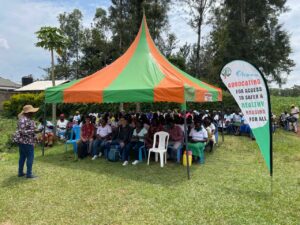
The second part of Hugo and Gaëtan’s visits took place in Madagascar, in three separate locations over the four weeks. After visiting partner associations in and around Antanarivo, the team travelled to Mananjary in the south-east before returning to Antsirabe and Antanarivo for the end of their stay.
The on-site visits began with work sessions at the Akany Avoko Ambohidratrimo centre. This centre takes in children from vulnerable families or orphans placed in care by the courts. The aim of the centre is to provide a living environment suited to the healthy development of the children throughout their placement. There was also discussion of the gradual de-institutionalisation of childcare with local players, with a view to encouraging children to be placed with foster families rather than in centres in the near future.
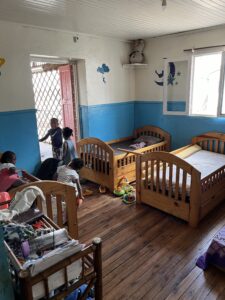
Still on the theme of fostering the care and development of children, the time spent with our partner HARDI Madagascar gave Hugo and Gaëtan a better understanding of the problems faced by street children in Antanarivo. The work sessions at HARDI also gave them a better understanding of the shortcomings of Madagascar’s education and vocational training system. HARDI has set up 3 pillars of education and training within its establishment: pre-school care, bridging educational training for school drop-outs who are not yet of working age, and vocational training for young adults. The aim of all these activities is to help young people find more decent living conditions by developing their skills, getting them off the streets and giving them access to lucrative economic activities.
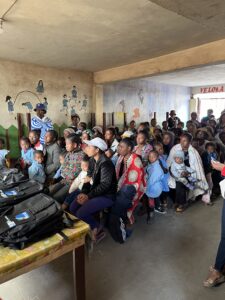
The visit to the Ikoriantsoa association in Antsirabe enabled the team to ensure that the project got off to a good start, particularly in terms of selecting the participating families. Visiting the homes of these families was a deeply moving experience for all concerned, as the vulnerability of the households in this part of the city, where luxury villas are mixed with families living in extreme poverty, came to the fore.
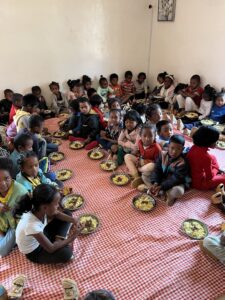
Successful field visits to Madagascar cannot take place without a few visits and working sessions with the Centre d’Appui au Développement Rural Intégré (CADRI). The aim was to meet the farming families involved in the financial empowerment and child health projects, through the distribution of enriched porridge and weekly medical visits to the villages. The discussions were very fruitful and led to the identification of a number of avenues for improving the profitability of the association’s various activities: bio-charcoal production workshops to combat deforestation, agricultural demonstration workshops to inspire farming families to adapt their work and crops to climate change, a food and pastry catering workshop, a mother-and-child medical centre, a buying and selling centre, etc.
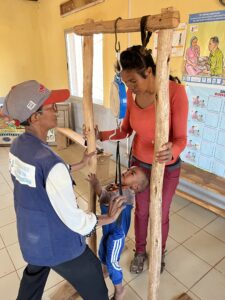
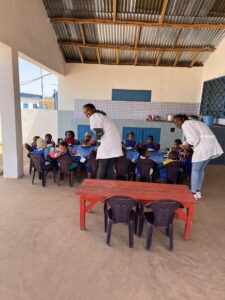
During these 6 weeks away from the office, we also visited other reception centres that are not supported by PADEM to try and find potential synergies in each other’s activities and share best practice.
The visits to the south-east of the country revealed issues of which the PADEM team was not yet aware: the taboo of twins in Manajary or Manakara is a good example. According to beliefs, families who give birth to twins are cursed and must get rid of either one or both children at birth, depending on the geographical area. The duration of Hugo and Gaëtan’s presence in the field once again highlights the importance of members of the head office team being able to visit the projects in situ. Going away for several weeks allowed them to immerse themselves in the reality on the ground, to hold in-depth discussions over a long period of time and to familiarise themselves with the people behind the names and figures in the project monitoring reports.
There’s still a long way to go, but regular visits over a number of years enable the team to see definite progress and to look to the future with optimism in a world where the social and political context is less and less favourable to international solidarity.
